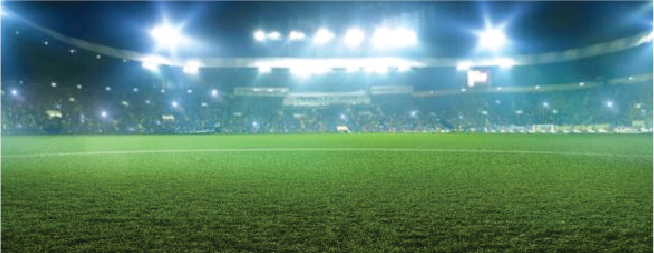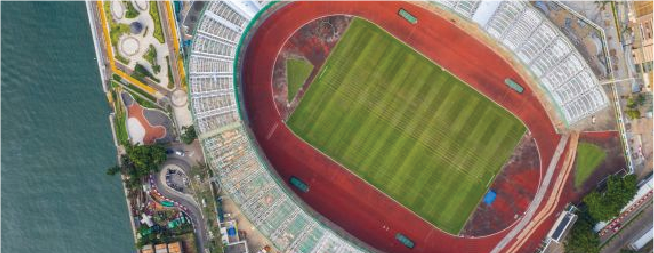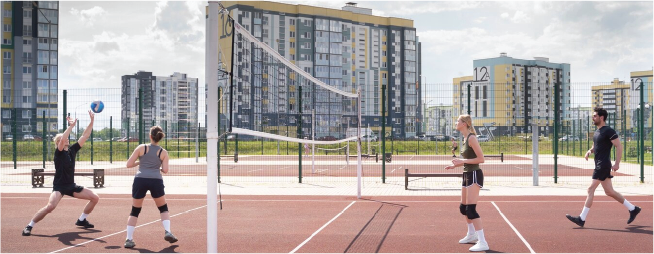

Your Equity Finishes First

An Attractive Proposition
As the buzz around a range of sports has significantly increased in the last two decades, and more commercial aspects have entered the sports space, this has had its reflection on the buildings and properties that are being used for these events. With global brands competing for advertising space, and professional players drown in different revenue streams, the public and the clubs have become more demanding when it comes to stadiums and arenas. Many expect more space, better lighting, improved facilities, WiFi and high-tech solutions, multiple food outlets and great transport links. This trend has substantially improved the long-term value of many sports spaces.


Lucrative Sports Advertising
Not just in the commercially dominant field of football, but also in other sports – such as rugby, basketball, tennis, hockey, volleyball and baseball, advertising is increasingly an important part of the interior of a sports space. Visitors and players alike are more routinely being treated to digital billboards and other display advertising, which provides the clubs in question with significant additional revenue.
Technology Makes Sports Go Faster
Technological advancements and sports apps are increasingly used by many fans, players and club members, as they bring the user even closer to the game than he already was. Moreover, it directly connects the stadium or arena to the user in a way that it places the home of the game at the heart of the sports experience. This makes the value and relevancy of the sport space in question increase, turning it into a central community hub for hundreds of thousands of sports fans around the world.

More Than A Sports Complex
The popularity of many sports, both global, national as locally, has led to stadiums, sports spaces and arenas offering many more services than merely the game in question. These days, many sport spaces contain one or even multiple restaurants, a bar, a gaming area, a gift or tools shop, a communal coffee shop, a hall of fame, a gym and parking spaces. This multipurpose-character of the sports property has increased its value substantially, generating additional revenue streams for investors and operators alike.


Seize The Opportunities
Our global team is highly experienced in identifying challenges and spotting opportunities within the sport’s real estate space, including location determination, operational aspects, future earning potential and regulatory requirements. Even though some issues may be different from typical real estate transactions, such as offices or residential, our global sports team has the experience and expertise to compete effectively in this fast-changing and lucrative field.
Superstars And Local Heroes
One of the appealing aspects of the sports spaces sector is that it caters any investment portfolio, as large-scale investments can be made into the properties of high-end clubs but investors can also opt to put their money into smaller, local clubs or memberships. Both have their appeal and our team would be delighted to tell you more about the different opportunities.
Get in Touch
Our global team of experts in sports property would be delighted to tell you more about this exciting segment: whether it involves a question about a particular market or sport, or you would like to find out more about investment flows into the sector, please do get in touch. Our years of experience, and our wide industry knowledge and expertise, has helped hundreds of satisfied clients, big and small, around the world.
Bastion Tower (level 11-12)
5, Place du Champ de Mars
1050 Brussels, Belgium
